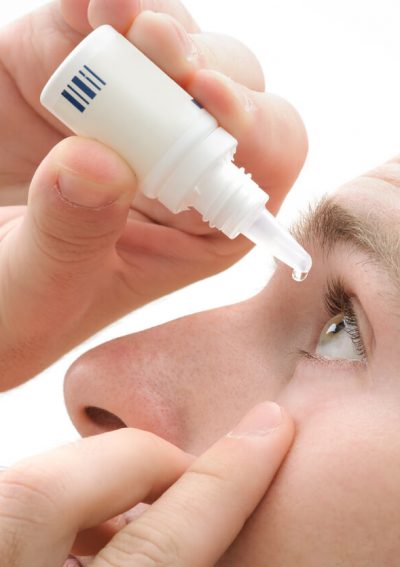EzriCare and Delsam Artificial Tears Eye Drops
EzriCare Artificial Tears eye drops are a brand of eye lubricant manufactured by Global Pharma Healthcare used to relieve dry eye. Global Pharma Healthcare recalled TriCare and Delsam Pharma Artificial Tears and ointments in February 2023 because of the risk of eye infections and vision loss.

Global Pharma Healthcare EzriCare and Delsam Products
Global Pharma Healthcare Private Limited manufactures EzriCare Artificial Tears Lubricant Eye Drops and Delsam Pharma Artificial Tears in India. Aru Pharma Inc. imported, designed and formulated the product in the U.S., and EzriCare created the label and marketed the eye drops in the U.S., according to EzriCare.
Aru Pharma’s attorney, Neil Flynn told Consumer Notice his client had minimal involvement with the products’ sale and distribution.
“It is our understanding that EzriCare sold the product directly to retail consumers through Amazon Marketplace and wholesale purchasers including Walmart. Aru Pharma had no role in the formulation or manufacture of the eyedrops, nor did it ‘distribute’ them. My client simply brokered a deal between EzriCare and Global Pharma for the purchase of the eyedrops,” Flynn said in an email.
EzriCare Artificial Tears Lubricant Eye Drops and Delsam Pharma Artificial Tears are eye drops made with carboxymethylcellulose sodium and are identical in formula. Artificial tears are also called ocular lubricants.
People don’t need a prescription to use these artificial tears. Each bottle contains a preservative-free formula made with 10 mg in 1 ml of carboxymethylcellulose sodium. Along with the active ingredient, the artificial tears contain inactive ingredients meant to mimic natural tears.
- Water for injection
- Sodium hydroxide
- Sodium chloride
- Sodium chlorite
- Potassium chloride
- Magnesium chloride
- Calcium chloride dihydrate
- Boric acid
Side effects of EzriCare Artificial Tears and Delsam Pharma Artificial Tears include changes in vision, eye pain, redness, itchy eyes and irritation. Seek medical attention if you have these symptoms for more than 72 hours or if they become worse.
Uses of EzriCare and Delsam Artificial Tears
Uses of EzriCare Artificial Tears and Delsam Pharma’s Artificial Tears include relieving dry eyes or eye irritation from sun or wind exposure. The drops may also protect or prevent mild discomfort. More severe dry eyes may require a prescription or a thicker formula such as a gel or ointment.
When applying eye drops, make sure not to touch the tip of the bottle to your eye or any surface to avoid contamination. If the solution becomes cloudy or changes color, stop using it right way
Medical providers may recommend using EzriCare Artificial Tears and Delsam Pharma’s Artificial Tears to relieve dry eye after cataract surgery or other eye procedures. This formula is only meant to be used in the eye and can be applied in doses of one to two drops at a time, as needed.
Researchers published their clinical trial results in BMC Ophthalmology and found that carboxymethylcellulose sodium helped patients relieve dry eyes after cataract surgery. Another study published in Journal of Medical Science and Clinical Research found a formula that uses glycerin and electrolytes to deliver carboxymethylcellulose into the eye increased effectiveness.
Side Effects of EzriCare and Delsam Eye Drops
Side effects of EzriCare eye drops include allergic reactions, eye irritation, blurry vision and eye pain. Most people tolerate the eye drops well and don’t have side effects from EzriCare Artificial Tears.
However, if you experience any pain, changes in vision, difficulty breathing or other signs of allergic reaction, seek medical attention right away.
One of the biggest risks associated with EzriCare Artificial Tears is the danger of infection from contaminated bottles.
EzriCare and Delsam Artificial Tears Recall
On Feb. 2, 2023, Global Pharma Healthcare issued an EzriCare and Delsam Artificial Tears recall. The manufacturer also recalled Delsam Pharma Artificial Tears. Global Pharma issued a recall for Delsam Pharma Artificial Eye Ointment on Feb. 24, 2023, for possible microbial contamination.
The company recalled these products because the Centers for Disease Control and Prevention linked them to a serious, drug-resistant infection from a rare bacterial strain called carbapenem-resistant Pseudomonas aeruginosa with Verona integron-mediated metallo-β-lactamase and Guiana extended-spectrum-β-lactamase (VIM-GES-CRPA).
As of May 15, 2023, the CDC reported that 81 patients in 18 states suffered VIM-GES-CRPA infections. Four people died and 14 others had vision loss. After the recall, people who had eye infections and vision loss filed EzriCare and Delsam Artificial Tears lawsuits against Global Pharma Healthcare, Aru Pharma, Delsam Pharma and EzriCare.
Alternatives to EzriCare and Delsam Artificial Tears
The FDA and CDC have warned people to stop using EzriCare and Delsam Pharma Artificial Tears, but there are alternatives and other brands of artificial tears and lubricating eye drops. The CDC hasn’t linked any other brands of artificial tears or eye drops to infections.
People may also opt to use other natural forms of relief for dry eyes, such as a warm compress or eye massages.
- Systane, Refresh, Optase or other brands of eye drops
- Tear stimulating medicines, such as pilocarpine and cevimeline
- Warm compresses
- Cold compresses made from tea bags
- Eyelid massage and blinking
- Light therapy
- Special contact lenses to trap moisture
Talk to your medical provider before trying a new treatment or dietary change. They can help you choose an effective, safe alternative to EzriCare Artificial Tears.
11 Cited Research Articles
Consumernotice.org adheres to the highest ethical standards for content production and references only credible sources of information, including government reports, interviews with experts, highly regarded nonprofit organizations, peer-reviewed journals, court records and academic organizations. You can learn more about our dedication to relevance, accuracy and transparency by reading our editorial policy.
- Centers for Disease Control and Prevention. (2023, May 15). Outbreak of Extensively Drug-resistant Pseudomonas aeruginosa Associated with Artificial Tears. Retrieved from https://www.cdc.gov/hai/outbreaks/crpa-artificial-tears.html
- U.S. Food & Drug Administration. (2023, February 27). FDA warns consumers not to purchase or use EzriCare Artificial Tears due to potential contamination. Retrieved from https://www.fda.gov/drugs/drug-safety-and-availability/fda-warns-consumers-not-purchase-or-use-ezricare-artificial-tears-due-potential-contamination
- U.S. Food & Drug Administration. (2023, February 24). Global Pharma Healthcare Issues Voluntary Nationwide Recall of Delsam Pharma Artificial Eye Ointment Due to Possible Microbial Contamination. Retrieved from https://www.fda.gov/safety/recalls-market-withdrawals-safety-alerts/global-pharma-healthcare-issues-voluntary-nationwide-recall-delsam-pharma-artificial-eye-ointment
- EzriCare. (2023, February 2). EzriCare Artificial Tears – Discontinue Use. Retrieved from https://ezricare-info.com/
- Centers for Disease Control and Prevention. (2023, February 1). Outbreak of Extensively Drug-resistant Pseudomonas aeruginosa Associated with Artificial Tears. Retrieved from https://emergency.cdc.gov/han/2023/han00485.asp
- Centers for Disease Control and Prevention. (2023, January 20). Update: Multistate Cluster of VIM- and GES-producing Carbapenem-resistant Pseudomonas aeruginosa associated with Artificial Tears. Retrieved from https://www.aao.org/Assets/3a187c94-7889-42e8-84a1-6b2e88e7d374/638098403609770000/epix-multistate-pseudomonas-investigation-20jan2023-pdf?inline=1
- Boyd, K. (2022, February 9). Lubricating Eye Drops for Dry Eyes. Retrieved from https://www.aao.org/eye-health/treatments/lubricating-eye-drops
- DailyMed. (2020). Artificial Tears Lubricant Eye Drops- carboxymethylcellulose sodium solution/ drops. Retrieved from https://dailymed.nlm.nih.gov/dailymed/fda/fdaDrugXsl.cfm?setid=ac1ea23c-f1c6-418f-921e-58553ee919cb&type=display
- Centers for Disease Control and Prevention. (2019, November 13). Pseudomonas aeruginosa in Healthcare Settings. Retrieved from https://www.cdc.gov/hai/organisms/pseudomonas.html
- Kiran, M. et al. (2017, March). A Comparative Study to Evaluate the Efficacy of Carboxy Methyl Cellulose with Glycerin and Balanced Electrolytes as excipients vs Plain Carboxy Methyl Cellulose, for keeping the eye moist. Retrieved from https://jmscr.igmpublication.org/home/index.php/archive/136-volume-05-issue-03-march-2017/1848-a-comparative-study-to-evaluate-the-efficacy-of-carboxy-methyl-cellulose-with-glycerin-and-balanced-electrolytes-as-excipients-vs-plain-carboxy-methyl-cellulose-for-keeping-the-eye-moist
- Yao, K. et al. (2015, March 20). Efficacy of 1% carboxymethylcellulose sodium for treating dry eye after phacoemulsification: results from a multicenter, open-label, randomized, controlled study. Retrieved from https://pubmed.ncbi.nlm.nih.gov/25880685/
Calling this number connects you with a Consumer Notice, LLC representative. We will direct you to one of our trusted legal partners for a free case review.
Consumer Notice, LLC's trusted legal partners support the organization's mission to keep people safe from dangerous drugs and medical devices. For more information, visit our partners page.
844-420-1914

